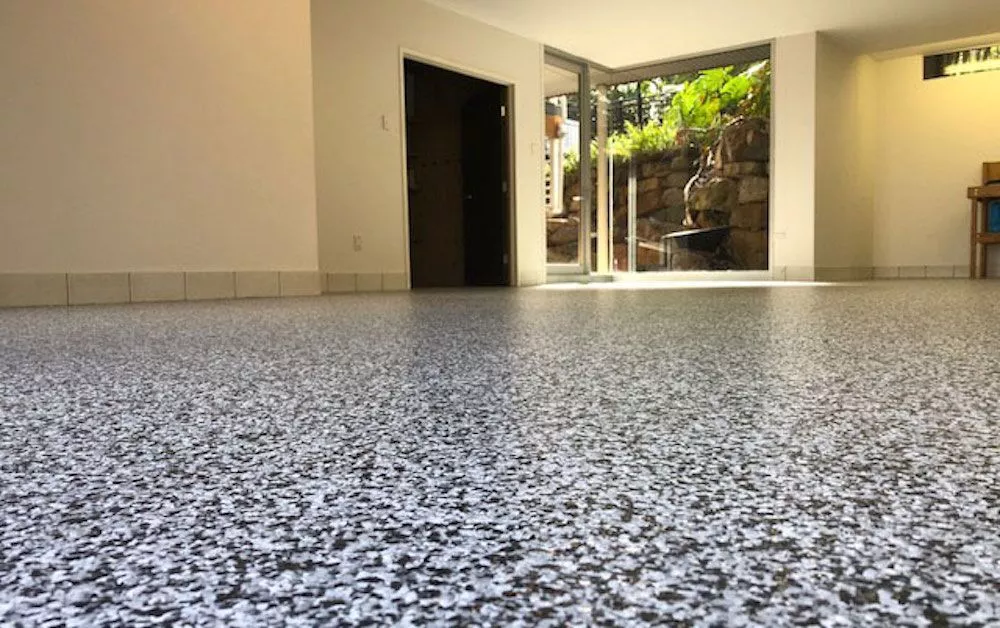Garage Floor Chandler AZ These tiles provide a versatile, durable, and customizable flooring solution that can transform the look and functionality of any garage space.

Here are some of the key advantages of interlocking garage floor tiles:
1. Easy Installation: Interlocking garage floor tiles are designed for easy DIY installation, requiring no special adhesives or tools. The tiles simply snap together like puzzle pieces, creating a seamless and uniform surface that covers the entire garage floor. Homeowners can install interlocking tiles themselves in a matter of hours, saving time and money on professional installation.
2. Versatility: Interlocking garage floor tiles come in a variety of materials, colors, patterns, and styles, allowing homeowners to customize the look of their garage space to match their personal style and preferences. Whether you prefer a sleek, modern look or a classic, traditional design, there are interlocking tiles available to suit your needs.
3. Durability: Interlocking garage floor tiles are made from durable materials such as PVC, polypropylene, or rubber, which are designed to withstand heavy foot traffic, vehicle traffic, and other wear and tear associated with garage environments. These tiles are resistant to stains, impacts, and chemicals, making them an ideal choice for garage floors that see a lot of activity.
4. Easy Maintenance: Interlocking garage floor tiles are incredibly easy to clean and maintain, requiring only periodic sweeping and mopping to keep them looking new. Unlike bare concrete floors, which can absorb stains and spills, interlocking tiles have a non-porous surface that prevents liquids from penetrating and staining the floor. This makes cleaning up spills a breeze and ensures that the garage floor stays clean and attractive with minimal effort.
5. Moisture Resistance: Interlocking garage floor tiles are resistant to moisture, making them suitable for use in humid or damp environments. Unlike traditional flooring materials such as carpet or hardwood, which can warp or rot when exposed to moisture, interlocking tiles are impervious to water damage, ensuring long-lasting performance and durability.
6. Thermal Insulation: Interlocking garage floor tiles provide thermal insulation properties that help regulate the temperature of the garage space. These tiles create a barrier between the concrete floor and the living space above, helping to maintain a comfortable temperature and reduce energy costs. Additionally, interlocking tiles can help reduce noise and vibration, creating a quieter and more comfortable environment in the garage.
7. Flexibility and Portability: Interlocking garage floor tiles are designed to be flexible and portable, allowing homeowners to easily remove and reconfigure the tiles as needed. Whether you’re rearranging your garage layout or moving to a new home, interlocking tiles can be taken apart and reinstalled with minimal effort, making them a versatile and adaptable flooring solution.
8. Cost-Effectiveness: While the upfront cost of interlocking garage floor tiles may be higher than other flooring options such as epoxy coatings or paint, they offer long-term value and durability that can save homeowners money in the long run. Interlocking tiles are resistant to wear and tear, requiring less frequent replacement than other flooring materials, and they can also help protect the underlying concrete floor from damage, reducing the need for costly repairs.
Conclusion:
Garage Floor Chandler AZ Whether you’re looking to upgrade the look of your garage, improve its functionality, or enhance its durability, interlocking tiles provide a versatile and customizable flooring solution that meets the needs of homeowners. With their long-lasting performance and aesthetic appeal, interlocking garage floor tiles are an excellent investment that can add value and functionality to any garage space.
The Garage Floor Company Arizona
2300 W Pecos Rd #126, Chandler, AZ 85224, United States
-1480-405-1661





